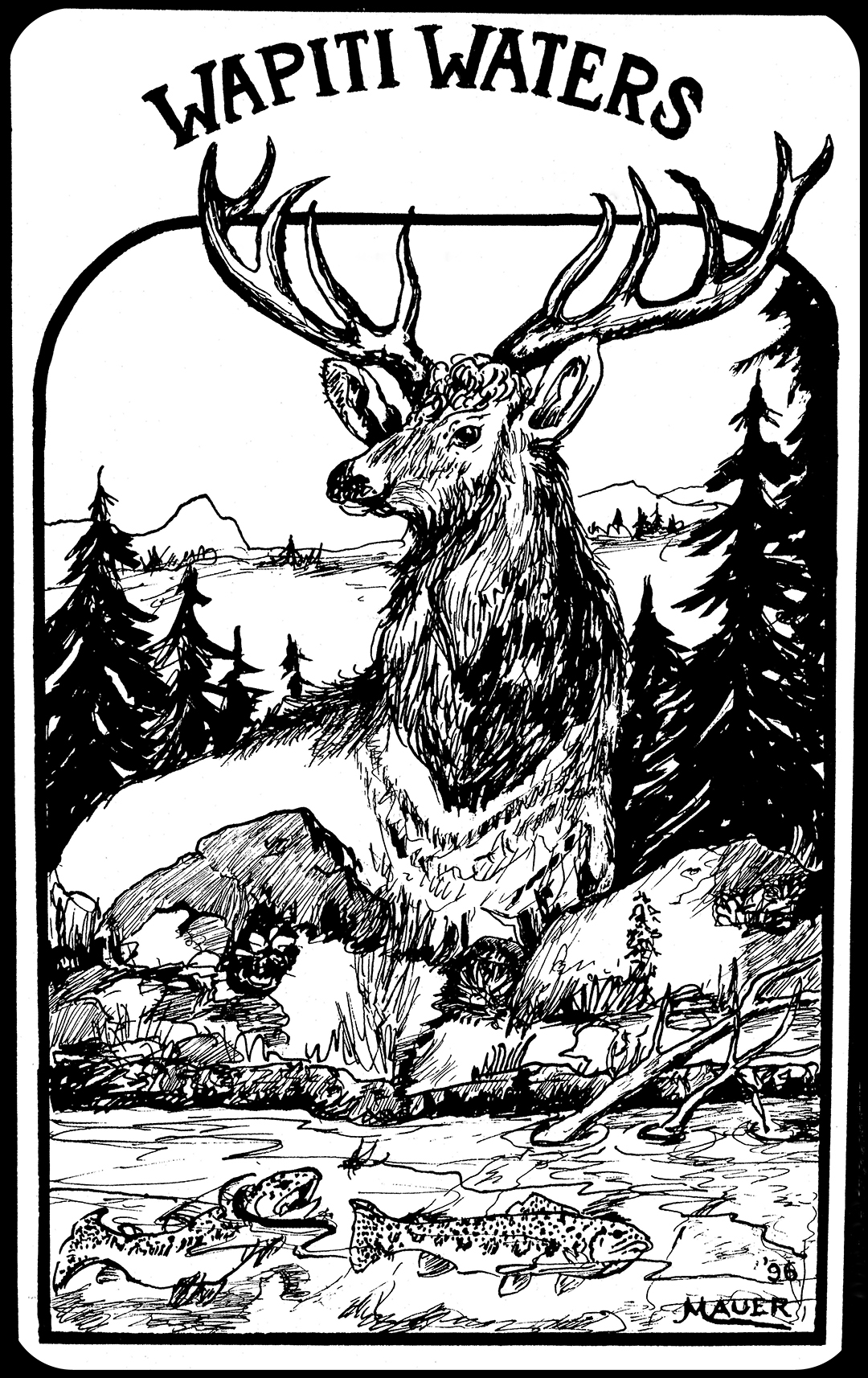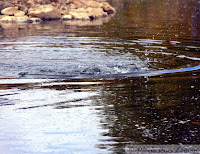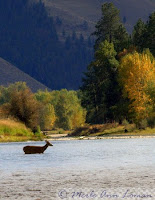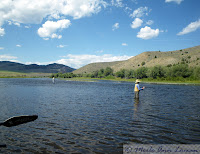This is the first article in a pair about fly fishing the trico hatch in western Montana. The second is about six tips to improve your success.
Within the fishing season there are times that one really anticipates. For many in western Montana, it is the Skwalla or salmon fly hatches early in the year. These two stonefly hatches are famous for bringing up big fish and they both come at times when you are anxious to fish — spring before high water and right at receding high water. But another hatch later in the year will get trout feeding on top on a consistent daily basis.
The trico mayfly hatch produces spinner falls where trout jam for 2-3 hours in the morning. And, because the trico hatch lasts so many weeks, mid-August through September, one has to devise a strategy to deal with this important time. No other mayfly species is so intense.
The reasons so many surface feeding trout can be found gulping tricos have to do with the slight decrease in the water temperatures of a late summer morning and the hundreds of mayflies on the water. It is a signal to the trout that fall is coming and winter is just around the corner. “We need to stock up,” they are saying. The joy is seeing all these targets. But, despite the sheer number of tricos dancing in the air, loads of spinner falls on the water, and the active pods of sipping trout, the trout can be very difficult to catch during this hatch. The water is flat, the sun bright, and trout see so many naturals. How do you get them to take your imitation? This can be agonizing.
Typically, western Montana’s trout fly fishing and guiding season lasts from mid-March through mid-October making trico season a very significant part. Jack Mauer of Wapiti Waters shares a few tidbits of information and wisdom that he has gained over 25 years of guiding fly fishermen and hopefully it will improve your catch rate. No doubt about it, targeting trout that are coming to the surface and feeding on these tiny aquatic insects requires a little different skill set. The best spinner falls are on partly sunny days. When the light reflects off the water and through the tippet, it will shine like a diamond necklace and alert the fish to you and your dry fly.
You can be doing everything right, make good presentation, hook a beautiful fish with a nice slow hook set, play him for one long run and then have him shake the hook or break off in a weed bed. This is where the joy can turn to agony. But therein lies the challenge of what trout fishing is all about.
This is some of the toughest, most technical angling that one encounters during the season, but it also is some of the most gratifying. A morning of trico fishing is something Jack really looks forward to every year because of the challenges and rewards of catching trout during this time. To reap the rewards yourself read the second article discussing the six “P”s to better success in trico fishing. The six “P”s are patterns, precision of presentation, patience, persistence, practice, and pulse. Here is a link to Jack’s Six “P”s of trico fishing.
Wapiti Waters Fly Fishing Montana – Seasonal hatch primer for western Montana
Westfly Entomology – For the western fly fishing community
Merle’s SmugMug photo site – More river and fishing photos in their original format
Incudes Big Hole, Bitterroot, Blackfoot, Clark Fork, and Missouri rivers during the months of March through November with captions
Trico slideshow photos in bigger resolution on Merle’s SmugMug site
If you like these articles, be the first to see them, subscribe by email (see above), by RSS, Twitter, or Facebook.



